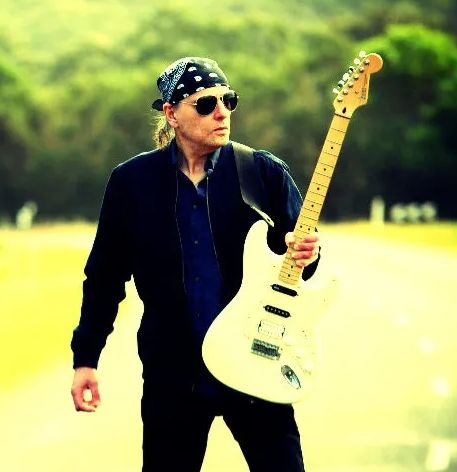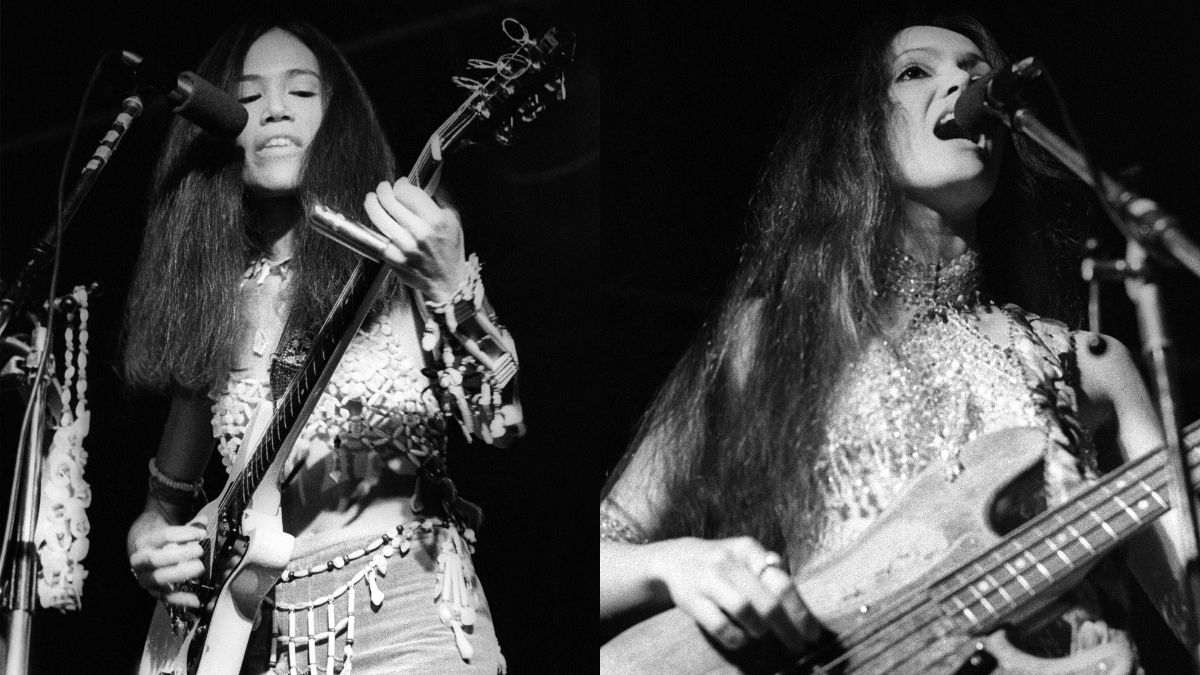“I wasn’t credited with any songwriting. That was a pity. But I didn’t make a fuss. I figured Peter was still pretty fragile”: Snowy White on his uncredited role on Peter Green’s comeback LP and how David Gilmour introduced him to the Whammy pedal
The ex-Thin Lizzy guitarist toured the world with Roger Waters, played with Gary Moore, but now he’s retired from the stage, he admits he was never entirely comfortable with pop status
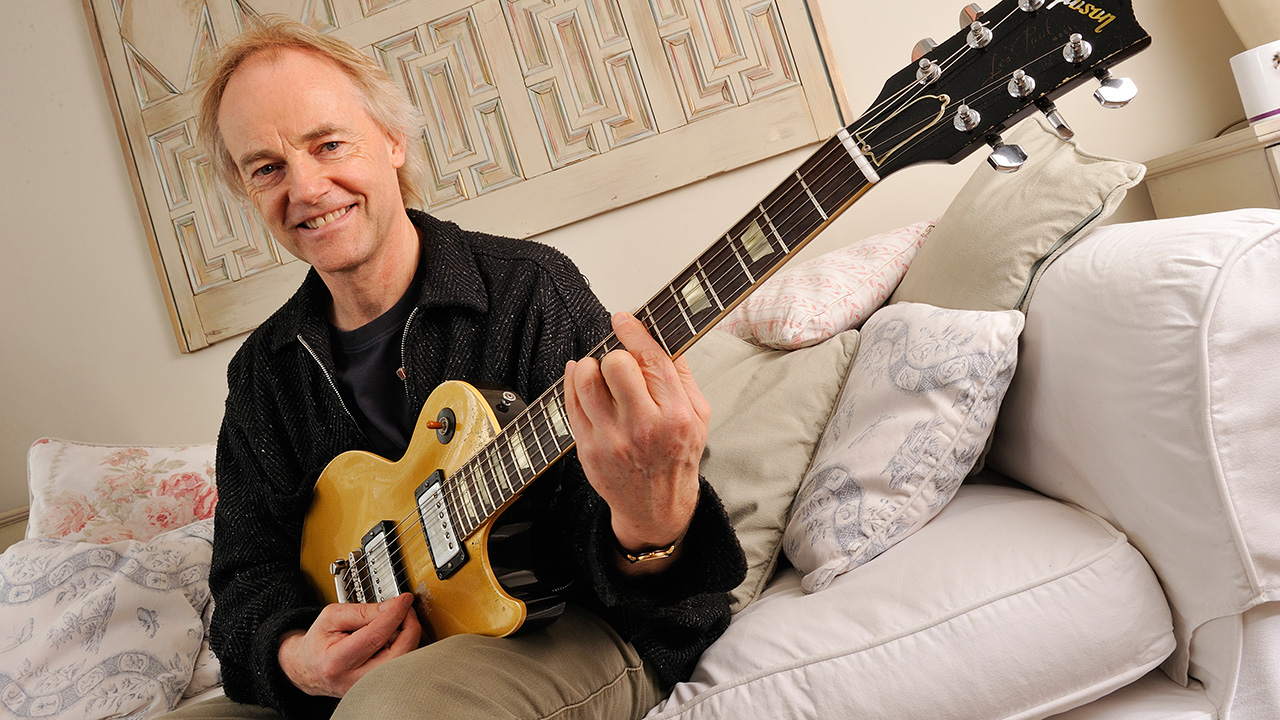
All the latest guitar news, interviews, lessons, reviews, deals and more, direct to your inbox!
You are now subscribed
Your newsletter sign-up was successful
Best of 2025: Over the holiday season, GW is shining the spotlight on some of its biggest stories of the year.
As a gun for hire, Snowy White has worked with Pink Floyd, Peter Green and Joan Armatrading, to name a few; and he was also a paid-up member of Thin Lizzy, appearing on 1980’s Chinatown and 1981’s Renegade.
He embarked on a prolific solo career with 1983’s solo debut White Flames – featuring signature track Bird of Paradise, and became touring guitarist with Roger Waters before retiring from live work in 2019.
You worked with Peter Green on his 1979 album In the Skies. What was that experience like?
“Peter rang me one day and said, ‘I’m doing an album for a small record company that my brother is involved in. Can I use you and your band?’ So we went into a studio and basically just jammed.
“He was in a good mood and it was a fun session. He was playing rhythm stuff and asked me to play lead, but I said, ‘Pete, it’s your album – you play some lead.’ In the end we both did a bit of each.”
“Of course, I was very happy to be doing it. I’d known him for a few years and I didn’t think he’d ever record again. He took away the tracks and worked on them, then we went to The Who's studio in Battersea, London, and recorded the tracks again.
All the latest guitar news, interviews, lessons, reviews, deals and more, direct to your inbox!
“I’d put in some of my ideas, but unfortunately, in the end, I wasn't credited with any songwriting. That was a pity. But I didn't make a fuss – I figured Peter was still pretty fragile and unsure about dealing with the business side of things, so I let it pass.”
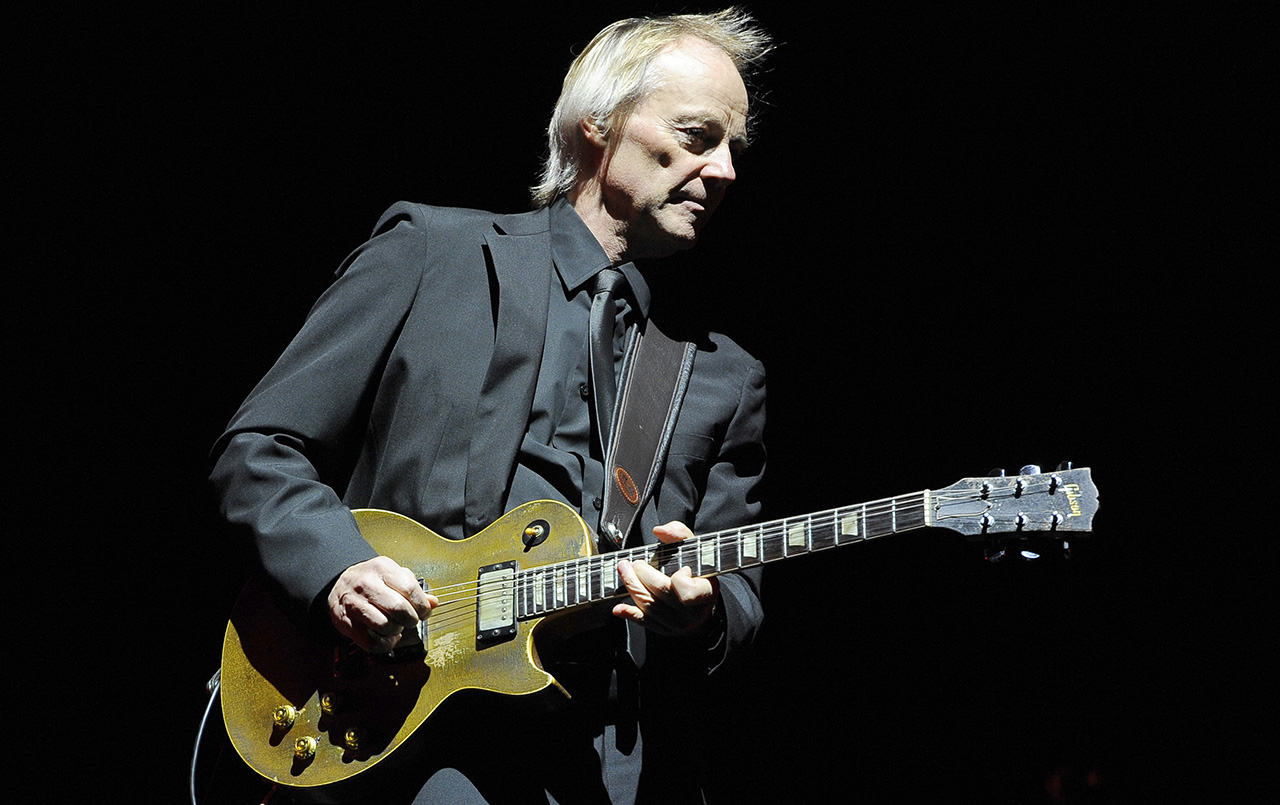
Your 1994 album Highway To The Sun featured David Gilmour and Gary Moore. What was it like working with them?
“I only asked them because the record company thought a few well-known names would be a good selling point. I didn’t really mind either way! But it was very nice of them to agree to appear – Chris Rea also.
“Gary came to the studio and I just asked him to blow over the end of a slow blues. With Dave’s contribution, I took the tapes to his boat studio and said, ‘It’s a really simple track; just do a few takes and I'll sort it out later.’ He used his Whammy pedal, which I hadn't heard before. I chose the best bits when I mixed it.
“It was all pretty simple, really. I guess the obvious difference is that I was telling them what I wanted, as opposed to the other way round.”
Which do you prefer: being in a band or being a solo artist?
“I’m not very good at playing other guitarists' parts, so I had to work quite hard to make it sound okay. It was occasionally a bit hairy, but I learned many years ago how to bluff my way through. It occasionally came in very handy; I didn’t come unstuck very often.
“Both situations have plusses and minuses. For instance, the nicest thing about being in Roger’s band – apart from being involved in all those great shows – was that all I had to do was walk on stage, pick up my already-tuned guitar and start playing. And we went all over the world for 13 years, so I saw a lot of places that I would never have got to on my own.
“In contrast, when I was touring Europe with my own band, The White Flames – firstly in the ‘90s, and then later, in between tours with Roger – I was doing almost everything. I was driving, booking hotels, sorting out travel, collecting the money, dealing with the various hassles, and then going onstage and doing the gig.
I don’t know much about guitars – I’m not really interested in the way they work or the different makes and models
“But the reward for that was that I was up on stage doing my own thing with musicians that were really loyal and helpful, and, more importantly, good-humoured, whatever happened, whatever went wrong. There was a lot of energy around and a lot of respect.
“Later on, we had some great guys as our crew, who took on most of those touring jobs, so I was able to relax a bit more. My favourite memories from my whole career are from those days – the three of us and couple of crew, travelling around Europe, having the energy to deal with everything that goes on, and still having plenty of energy left onstage.
“We had some great times together. So, I guess the answer is that I’ve been happy that I could do both; but doing small gigs with my own band far outweighs the big stadium tours.”
I have to admit that I don’t know much about guitars – I’m not really interested in the way they work or the different makes and models
In 1995 you released a compilation album called Goldtop, a reference to your famed Les Paul.
“I went on holiday to Sweden with a friend and met a lovely Swedish girl, so I stayed there for over a year. I joined a three-piece band, The Train, and the drummer had a friend who was selling his Les Paul Goldtop. I had a go and liked it, so I bought it.
“I have to admit that I don’t know much about guitars – I’m not really interested in the way they work or the different makes and models. I just liked that Les Paul; and as it turned out, it was the only guitar I had for many years.
“I played it nearly every day, and later, when I had to use different guitars for the various bands I was with, I still used my old Les Paul whenever I could. I kept it for 45 years, finally letting it go about five years ago.”
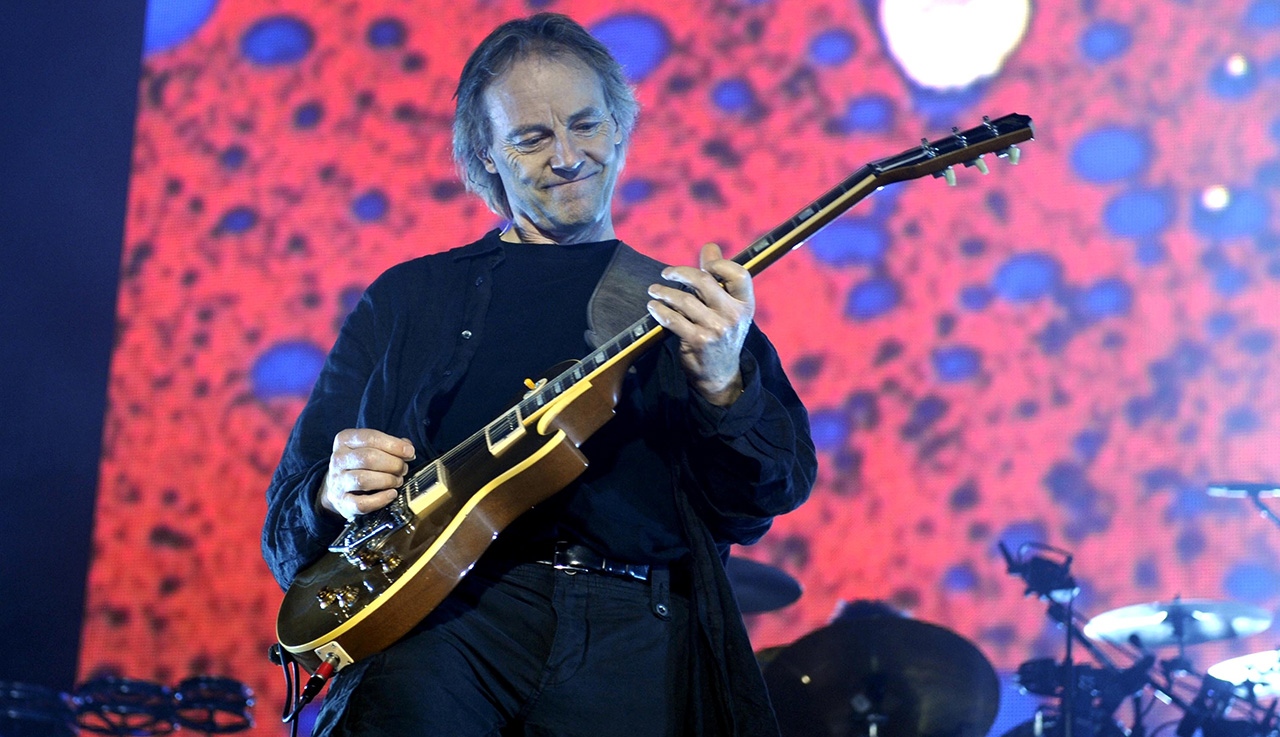
How has your guitar playing has evolved over the years?
“It was a slow process, but as time went by my playing became more confident. Quite a few years ago I started to feel that I had nothing to prove any longer. I think I became able to choose better notes and spaces, just pleasing myself, really.”
Looking back on Bird of Paradise, how important was that track and album for your career?
I was uncomfortable with the idea of being in pop music, and I soon discovered it wasn’t for me. But Bird of Paradise opened some doors
“Obviously having a successful single means you get heard by more people. But in the case of Bird of Paradise, many people saw me as a ballad singer who happened to play a bit of decent guitar.
“As it was my first solo album, I wasn’t really expecting much from it – certainly not a hit single. I was pretty uncomfortable with the whole idea of being in that area of pop music, and I soon discovered that it wasn’t for me.
“I soon went back to the blues, forming Snowy White’s Blues Agency. But Bird of Paradise opened some doors though, and I’m grateful for that.”
What’s your current gear setup?
“I used to have a very simple setup – just my guitar into a Vox AC30 via a [Boss] Blues Driver pedal and a [Electro-Harmonix] Holy Grail reverb. But I don’t have a setup any longer; I haven’t done a live show since June 7, 2019.
“These days my fingers don’t do exactly what my brain tells them to do, so I preferred to retire from live shows rather than put on a second-rate performance.”
So what’s next for you?
“I’m still recording albums, but apart from that I’m not really very active in the music business any longer. I’m very happy to spend most of my time at home. In fact, right now, I never want to get on a plane again!
“But you never know what might transpire in the future. We’ll see what fate has in store.”
- Unfinished Business is out now.
Joe Matera is an Australian guitarist and music journalist who has spent the past two decades interviewing a who's who of the rock and metal world and written for Guitar World, Total Guitar, Rolling Stone, Goldmine, Sound On Sound, Classic Rock, Metal Hammer and many others. He is also a recording and performing musician and solo artist who has toured Europe on a regular basis and released several well-received albums including instrumental guitar rock outings through various European labels. Roxy Music's Phil Manzanera has called him, "... a great guitarist who knows what an electric guitar should sound like and plays a fluid pleasing style of rock." He's the author of Backstage Pass: The Grit and the Glamour.
You must confirm your public display name before commenting
Please logout and then login again, you will then be prompted to enter your display name.



![Roger Waters - In the Flesh? (Live) [From Roger Waters The Wall] (Digital Video) - YouTube](https://img.youtube.com/vi/Jvl0MDXH96M/maxresdefault.jpg)
